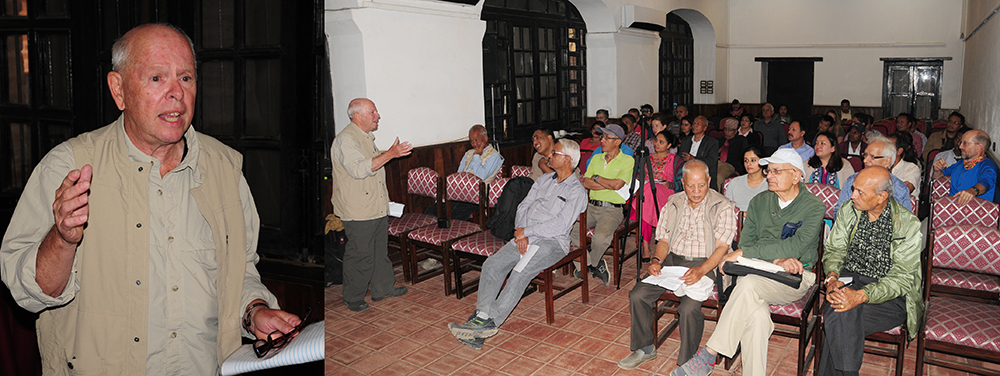Lecture Series
Everybody Has a Story: New Approaches to Story Analysis in Far Western Nepal

Walter Winkler
on
Everybody Has a Story: New Approaches to Story Analysis in Far Western Nepal
Developments in narrative, discourse, and metonymy analysis, and the appreciation of the insights of Mikhail Bakhtin have enabled new approaches to the studies of stories and storytelling. In Far-Western Nepal, these approaches make possible the use of under-appreciated resources based on interviews with villagers not specialising in storytelling. This development offers an alternative to a focus on specialist storytellers and types of stories such as the heroic tale and in their place discourse (conversation)-based texts from a broad range of individuals from diverse castes. Taken together they provide a less elite approach to the content of stories and function of storytelling.
This talk will shed light on the importance of district-wide story collecting and new approaches to story analysis and future research. It will also indicate key research supporting the three approaches utilised: the small story (Anna De Fina, Alexandra Georgakopoulou), chronotopes (Mikhail Bakhtin, Nele Bemong, Pieter Borghart) and metonymy (Jeannette Littlemore) and make suggestions for their further applications for story research in Nepal.
To listen or download lecture in audio format
* * *
Walter Winkler was a Peace Corps volunteer in Baitadi district in Far-Western Nepal in the mid-1960s and has been regularly visiting the district since. He received his PhD in Cultural Anthropology in 1979 from the University of Wisconsin. Some of Dr Winkler’s publications include Oral History and the Evolution of Thakuri Political Authority in a Sub-region of Far Western Nepal (1984) in Himalayan Research Bulletin, The Song of Praise: Thematic Elements in the Ethno-history of a Sub-region of Far Western Nepal (1978) Nepal Studies Conference University of Wisconsin (Madison), and Spirit Possession in Far Western Nepal (1976).
This lecture was organised in collaboration with the Association for Nepal and Himalayan Studies – Kathmandu Centre.
